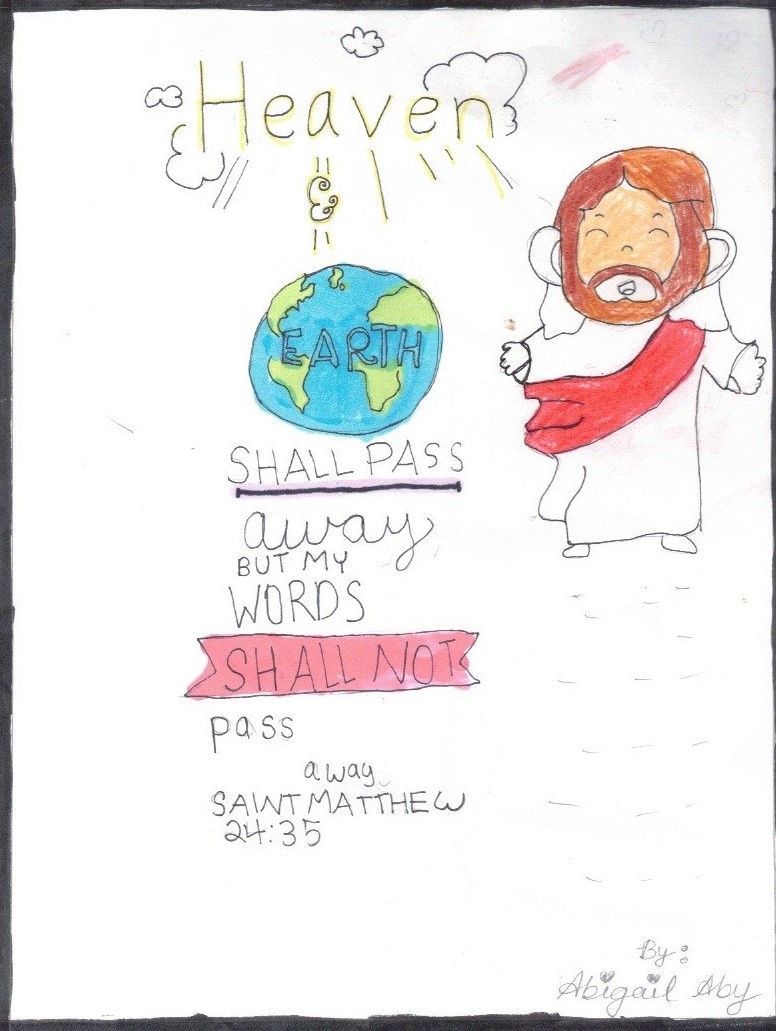Vicar's Message

Dearly Beloved in Christ,
Let's thank God for the protection and care over the last month. Let's enter into a new month with grateful hearts. I hope you all are observing Lent in various ways. Lent asks us to take up our own cross and follow Christ—not Christ’s cross, but our own. It symbolizes a life of sacrifice and obedience to God. What Christ did in obedience to God was the purpose of His life. Similarly, our lives have a purpose in God's creation that should be fulfilled through a fruitful Christian life. These Lenten days remind us every hour of the real purpose of life.
Through His crucifixion, He is redeeming every one of us. There is no segregation, categorization, or classification—He redeems all. We are the visible instruments of God, meant to redeem others, embodying the liberating hand of God.
In His ministry on earth, He responded to every human cry with compassion and mercy. No man or woman should cry, for they are His own, meant to be with the Lord in the Kingdom.
To help others, we must overcome temptation through self-control and self-discipline, which foster self-confidence and self-esteem. The Passion Week conveys many things and messages, chiefly the message of Divine salvation, which is celebrated on the cross. It defeats death and, through resurrection, invites everyone to the feast of resurrection.
Beloved brothers and sisters in Christ, let's make our lives a useful vessel in the hands of the Creator. Let Him remold us in this season of Lent.
Let me wish you great days of redemption, which are well pleasing to Him.
Lovingly,
Kochummen Achen
Horeb MTCLA
Personal(IZED) Resurrection
In the following few passages I would like to explore the links between personal/contemplative fasting and the possibility of Jesus’ resurrection (within ourselves); a personalized resurrection of the self regardless of where you might see yourself within a spiritual/socio-religious hierarchy. What might we need in addition to the time of contemplation and fasting in order to experience a renewal of the self? Who is this renewal made available to? My gleanings are in no way exhaustive to arrive at a conclusive understanding; it’s simply an exploration of my thoughts and is open to critique and exploration.
I’ve been intrigued by the discrepancy between the chronological order of biblical events that lead to Christ’s resurrection and the order in which we celebrate Jesus’s resurrection (Easter) as a Christian community. The order of (main) biblical events of Christ’s life after birth include His spiritual growth, time of testing in the wilderness after fasting, His works, death and resurrection.1 However, it is Jesus’ way i.e. His works and teachings that comprise the major body and volume of the biblical accounts of Jesus. It is what makes His resurrection meaningful. Yet, the events that lead to the celebration of Easter as a socio-religious community today mostly include observances of particular events in Jesus’ life—lent (and its accompanying prayers), Good Friday and Easter. There is a significant omission —that of the remembrance of the way of Jesus which show us how we are to conduct ourselves and stay in regular communion with the Lord. In other words, we observe important events but fail to remember the processes of Jesus that we are to imbibe and emulate.
Personally, it is the way, (teachings and works) of Jesus that help me gain insight into His nature rather than particular events in His life. It is the manner in which He continually abided in His Father that helped Him accomplish the work entrusted to Him. The New Testament records that Jesus was filled with the Holy Spirit after John the Baptist baptized Him. Then God led Jesus into the wilderness as a test to be tempted by the devil.2 Jesus passed the test with flying colors, having successfully resisted Satan at His time of utmost weakness by leaning on every word of God. He then began His work/ministry, gathered His disciples, travelled to teach His ways and perform miracles. In fact, He was crucified because of His works and teachings. Therefore, highlighting the works of Jesus, I believe might help lead the way to experience the resurrection of Christ in our own self. It might shift the focus from lent as a mere religious observance to how it aids and sets us up for divinely-led works to unfold within as a daily pursuit. It allows us to align with God’s divine perspective. This alignment I believe needs to be highlighted as much as the observance of lent, Good Friday and Easter, if we are hoping to parallel Jesus’ life as a practice beyond lent season.
Like Jesus, I believe human actions can also become divinely shaped when we fast and renew our spirit. Fasting then is a sacred tool that equips us to use the gifts of the Spirit Christ bequeathed upon us.3 We are to use what Christ already gave us and that nobody can take away from us; we are to practice using it. His resurrection already proves to us that nothing, absolutely nothing can separate you and me from the love of God. Romans 8:30 (ERV) mentions, “Yes I am sure that nothing can separate us from God’s love--not death, life, angels or ruling spirits. I am sure that nothing now, nothing in the future, no powers, nothing above us or nothing below us—nothing— in the whole created world will ever be able to separate us from the love God has shown us in Christ our Lord.”
Christ raised himself from death to give you and me a life of phenomenal hope, faith and courage in our individual journeys. Jesus came for each of us— to help us do the unique work God asks of each according to our giftings. This personalized journey with our Lord is available to us regardless of who we are—regardless of socially constructed distinctions of, gender, age, race, weight, height, ability, success, failure, earning power, marital status, community of belonging, language, culture, interest, religious stature—you get the drift. He bequeathed His spirit upon each of us to be used in a unique way.
Perhaps what hinders our ability to use God’s gifts and the reason we struggle to move according to Godly wisdom is because we are overfed with the junk of fear, anxiety, worry, hopelessness all of which the world gave us—not God. Your ability to accomplish His works then depends on the ability to discern the voice of your Shepherd 4 who guides you. To recognize His gentle voice and reflect Whose we are rather than who we are. So, maybe this lent season is a good time to fast from the trappings of worldly voices that are not His. Instead we can practice feeding on God’s word and spirit—food that He already prepared and left for you and me. Discerning God’s voice is then to be a regular habit so we can recognize His soft nudges and whispers more easily and make His way our way on a daily basis.
Reference
1The order of events as mentioned in Mathew 4-28 are Jesus’ baptism, being led to the wilderness, staving off the devil, Jesus’ teachings (and miraculous WORKS which occupy the majority of the chapters), His crucifixion and finally His resurrection2Mathew 4:1, Luke 4:1 3“Peace I leave with you; my peace I give you.” John 14:27 (AMP)
4 Psalm 23:1 The Lord is my Shepherd (italics mine)
Reflection
When I was a child and scared (of many things), my father and mother would come beside me, talk to me about my worries, and remind me of the words from Psalm 121. "I lift up my eyes to the hills; from where is my help to come? My help comes from the Lord, the maker of heaven and earth. He will not let your foot stumble. He who watches over you will not sleep...” As a child, the images that would often pop into my head upon hearing the words in this psalm was of a God who kept a steady and loving watch through day and night; a God whose presence provided shade against the harsh sun and the solitary glare of moonlight. There are various commentaries and exegesis on this psalm. But in this reflection, I hope to share what this psalm has meant to me. I am still scared many days, and I often have to repeat the words from Psalm 121 to myself over and over again to quell my anxieties and fears. When I am faced with a not-yet-experienced situation (and thus scared about all the uncertainties that accompany such a situation), I am reminded that the "Lord will watch over your coming and going both now and forevermore.” It tells me that while I may not fully understand the situation that I am entering into, God’s presence is steadfast, and there will never be a moment during the situation where my coming and going will be deserted or abandoned. And when I feel I have exhausted all options and cannot see a way out, I am reminded to rest in God, for my "help comes from the Lord, the maker of heaven and earth.” This reminds me that my help comes from the omnipotent Creator. The very God who created us and all that is around us.
Saumō Rābō(Great Lent)
Forty days and forty nights
Thou wast fasting in the wild;
Forty days and forty nights
Tempted, and yet undefiled.
And from worldly joys abstain;
fasting with unceasing prayer,
Jesus, Saviour, hear our call!
Victor in the wilderness,
Grant we may not faint nor fall!
Holier gladness ours shall be;
Round us, too, shall angels shine,
such as ministered to thee.
Ever constant by thy side;
That with thee we may appear,
At the eternal Eastertide.
Lent is a period of taking the time to rewind in our life and pause to reflect on our soul. It is a time intended for us to identify of our human flaws and to reset them by looking forward to the hope we have as we understand the meaning of Easter.
The hymn above was written by English Anglican clergyman George Hunt Smyttan, who served as a rector of Hawksworth, Nottinghamshire, England (1850–59). His Father, Dr. George Smyttan was a 19th-century Scottish physician who helped to run the Medical Missionary Society in India.
This hymn, was originally a poem which was altered by Francis Pott and was inspired by Matthew 4: The Temptation of Jesus, how Jesus was tempted for forty days and forty nights in the desert.
There are several references of forty days and fasting that we can see throughout the different life stories in the Bible.
-Noah and his family remained in the ark for forty days and forty nights (Genesis 7:4) -Moses led the Israelites out of Egypt toward the Promised Land. God called Moses at Mount Sinai, he was there with the Lord for forty days and forty nights without eating bread or drinking water. (Ex.34: 28) -David and Goliath, God’s people had to endure the challenges given by Goliath for forty days. (I Samuel 17:16) “Now Jesse said to his son David, take...these ten loaves of bread for your brothers. (vs.17). -Elijah flees to Mount Horeb. “An angel touched him and said, “Get up and eat.” He looked around, and there by his head was a cake of bread and a jar of water.(1 Kings 19:vs.5-6). Strengthened by that food, he traveled forty days and forty nights until he reached Horeb, the mountain of God. ( vs.8).-Jesus Christ, was led by the Spirit into the desert/wilderness to be tempted by the devil. He fasted for forty days and forty nights (Mt. 4:2). In the above life stories, we see how each life went through a time of stillness, waiting, wilderness, challenges, suffering, but through it they all believed and looked beyond their circumstances.
Wilderness can be defined as an uncultivated, uninhabited, and inhospitable region. A space where man does not remain. At times, we experience periods of our lives where we face hardships or challenges. We end up in a space for a duration of time to ponder and grow spiritually. During Lent, we focus on the forty days that Jesus Christ spent in the wilderness and how he faced and overcame various challenges. The devil tempted in multiple ways, through:
1. Appetite “ The tempter came to him and said, if you are the Son of God, tell these stones to become bread.” (Mt.4:3) The devil knew Christ was in the wilderness fasting for forty days. Only God can feed your soul and nourish your mind, body, and spirit.
2. Pride “the devil took him to the holy city and had him stand on the highest point of the temple. If you are the Son of God, “throw yourself down. For it is written.” (Mt. 4:6) The devil deceived by quoting scripture, but Jesus Christ resisted the devil by keeping his focus, strength, and confidence in God. We can find our identity through God and through his humility and sacrifices he made for us.
3. Worldly pleasure “the devil took him to a very high mountain and showed him all the kingdoms of the world and their splendor. “all this I will give you, if you bow down and worship me.”
Everything belongs to God, things are given to us as a gift or blessings.
Jesus Christ did not fall into any of the temptations, he just relied on the word of God because he understood how powerful it is. This passage teaches us a model on how to face temptations; take a look at how Jesus Christ overcame all the temptations. He did not fall, argue, counterattack, flee or have pride. He remained loyal and obedient to the one who is the author of our life and loves us beyond measure.



